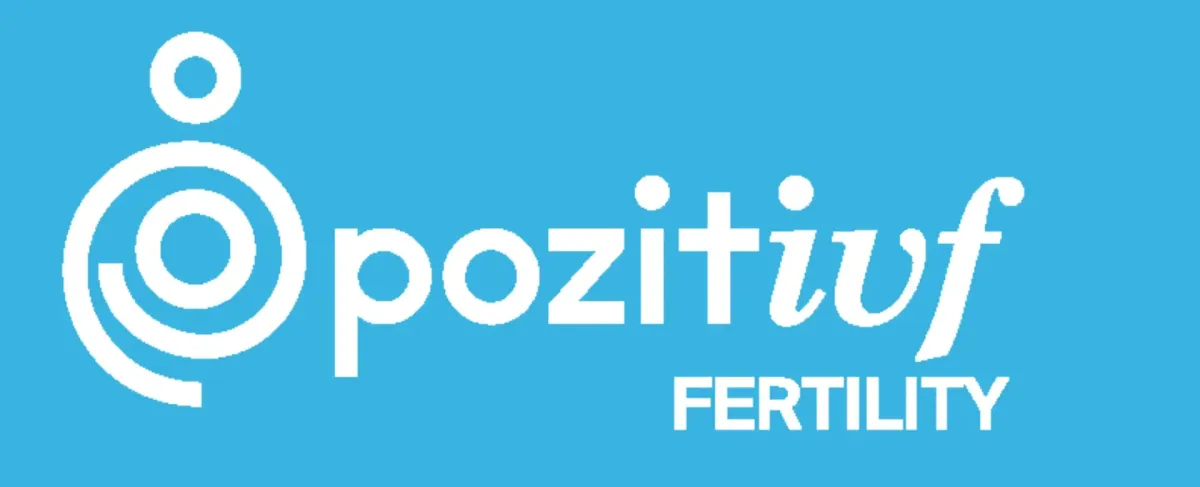
Welcome to Our Blog.
Insights and perspectives on fertility issues
and reproductive justice.

How to Increase Your Chances of IVF Success: Expert Tips for a Successful IVF Journey
Expert Tips for a Successful IVF Journey
A comprehensive guide of expert tips and recommendations to help increase your chances of success on your IVF journey.

A healthy body and mind are essential for the success of in vitro fertilization (IVF). The carrier should remain as happy, calm, and healthy as possible during fertility treatments, as unwanted anxiety and unhealthy lifestyle choices can affect IVF treatment adversely. All individuals undergoing IVF fertility treatment need information about appropriate lifestyle choices to help support conception and optimal fetal health, ideally provided by staff at a fertility clinic.
1. Reduce Stress Levels
Infertility is one of the greatest factors of psychological stress, with anxiety, depression, decreased quality of life, and stress being the most frequently occurring psychological disorders. Rates of stress, anxiety, and depression among IVF patients are typically higher than in the general population, with up to 60% of infertile individuals reporting psychiatric symptoms including anxiety and depression. (Source) And the higher the level of infertility-related stress, the lower the chances of a successful pregnancy with IVF. (Source) Certain stress reduction techniques have been widely shown to significantly reduce stress and anxiety scores in women undergoing infertility treatment. Some of the more effective techniques include:
Prioritizing Self-Care
Progressive Muscle Relaxation
Getting Physical Exercise
Hatha Yoga
Mindfulness Meditation
Guided Imagery
Expressive Writing
Daily Gratitude Journal
Practicing Self-Awareness
Relaxing Massage
Deep Breathing Exercises
Cognitive Behavioural Therapy (Talk Therapy)
Autogenic Training for Mind-Body Balance
Learning Distress Tolerance Techniques
Connecting with Friends for Social Support
2. Get More, Better Sleep
Sleep plays a role in influencing female reproductive health, mainly through the ovarian cycle and sex hormones. 7 to 8 hours of good-quality sleep is recommended to improve outcomes for those undergoing IVF cycles, particularly with clinical pregnancy and live birth. Conversely, poor sleep quality may be a risk factor for adverse IVF outcomes for women under 35 years old. Women who reported good sleep quality showed higher clinical pregnancy (69.3% vs. 65.1%) and live birth rates (50.5% vs. 45.7%) compared to those reporting poor sleep quality. (Source)
3. Maintain A Healthy Weight
Obesity reduces fertility in both males and females. In males, overweight and obesity are associated with reduced ejaculate volume, sperm concentration, and total sperm count. In women, a high body mass index (BMI) increases the risk of infertility, lengthens the time taken to conceive, and raises the risk of miscarriage and pregnancy complications (Source). Overall, fertility treatments are less successful in overweight and obese women and have decreased rates of pregnancy and live birth. Access the Adult BMI calculator here to ensure you are at a healthy weight.
Similarly, underweight women with a low BMI have also been shown to have decreased fertility and pregnancy rates, as well as increased risks of premature birth, low birth weight, and intrauterine growth retardation. (Source)
4. Exercise with Caution
Women who exercise regularly see an increase in implantation rates, with an 80% chance of becoming pregnant and a 70% reduction in the risk of miscarriage. For obese women, exercise leading to weight loss has been shown to improve ovulation and subsequent fertility. Those relying on physical exercise for stress relief during IVF treatment should consider low-intensity activities like gardening instead.
5. Eat a Balanced Diet
Women's dietary intake during the periconceptional period can have profound and lasting effects on their children's health. Undernutrition and overnutrition around the time of conception have both been shown to increase the risk of obesity, and cardiovascular and metabolic disorders in the offspring.
A study shows that women under 35 who follow a "Mediterranean" diet in the six months before assisted reproductive treatment have a significantly better chance of becoming pregnant and giving birth to a healthy baby versus women who did not adhere to a Mediterranean diet. Researchers found that women who ate a diet with more fresh vegetables, fruit, whole grains, legumes, fish, and olive oil; and less red meat, before IVF treatment had a 65-68% greater likelihood of achieving a successful pregnancy and birth. The study also showed adherence to the Mediterranean diet by male partners may help to improve semen quality.
6. Consult Your Doctor About Vitamins and Supplements
Supplements can help improve egg quality and quantity for many seeking IVF treatments, and inadequate levels of certain vitamins may cause the failure of IVF treatment. It’s best to consult your doctor about the need for additional supplements and multivitamins to increase your chances of IVF success according to your body's conditions. But if you're in good health, it is best to get your daily nutrients from food instead of supplements because the vitamins and minerals in foods are easier for the body to absorb.
Vitamins that have led to improvements in IVF outcomes include the following:
Vitamin D. Food sources rich in Vitamin D include: Cod Liver Oil, Fortified Milk, Eggs, Salmon, Trout, and White Mushrooms
Vitamin B6. Foods high in Vitamin B6 include: Bananas, Chicken Breast, Chickpeas, Ground Beef, Salmon, and Turkey
Vitamin B12.Foods rich in Vitamin B12 include: Beef Liver, Clams (cooked), Ground Beef, Oysters (cooked), Plain Yogurt, and Salmon
Omega-3 Fatty Acids. Foods rich in Omega-3 Fatty Acids include: Flaxseed Oil, Whole Flaxseed, Canola Oil, Chia Seeds, and Walnuts
Magnesium. Food sources with high levels of Magnesium include: Almonds, Black Beans, Cashews, Chia Seeds, Peanuts, Pumpkin Seeds, and Spinach
Melatonin. Melatonin has been shown to preserve fertility later in life, alleviate frustration in women delaying childbearing age, and enhance fertility in women with non-aging-related infertility throughout their reproductive life span.
7. Be Cautious with Medications
Certain medicines can cause serious birth defects when taken during pregnancy. This can be anything from over-the-counter medications and dietary or herbal supplements or even acne medications. Some long-term birth control such as progestin injections may lead to the fertility taking longer to get back on track. (Source) Based on the product, your fertility doctor can suggest safer alternatives or dose alterations.
8. Avoid NSAIDS
The use of non-steroidal anti-inflammatories (NSAIDS) has been linked to an increased risk of miscarriage. For those undergoing IVF, it’s best to avoid nonsteroidal anti-inflammatory drugs (NSAIDs) such as ibuprofen (found in Motrin®, Aleve®, and Advil®) during IVF as the anti-inflammatory properties may prevent the ovaries from expanding and growing, essentially canceling out treatment. For back, neck, and muscle pain or headaches during IVF, Acetaminophen (Tylenol®) is the best way to treat pain. You may also take Actifed, Sudafed®, Tums®, or plain Robitussin® if needed for cold or allergy symptoms.
9. Avoid Raw Foods
Raw or half-cooked seafood may contain high levels of mercury which could cause problems with the development of the baby and may result in birth defects. It’s best to avoid undercooked or raw foods like raw eggs, raw oysters, raw shellfish, cold prawns, crab, mussels, rare hamburger meat, raw sushi, unpasteurized milk, and mold-ripened cheeses like camembert and brie.
10. Avoid Sugar and Sweeteners
Women in their IVF cycle should avoid simple carbohydrates and refined sugar as well as artificial sweeteners like saccharine. Simple carbohydrates can cause increased inflammation in the body, which can impact fertility. Refined sugar can break down very fast and potentially increase your blood sugar levels very quickly. Bread, pasta, cakes, and baked goods contain simple carbohydrates and refined sugars and should be avoided. When consumed in excess, these foods can lead to insulin level spikes. The resulting insulin spikes could lead to insulin sensitivity, insulin resistance, or diabetes, which can hamper your fertility rate even further.
Drinking fizzy drinks, sodas, and energy drinks should also be avoided for those undergoing IVF treatment. A Boston University study found that females who consumed at least 1 soda per day had a 25% lower fertility rate; males who consumed at least 1 soda per day had a 33% lower fertility rate. Energy drinks were found to have even lower fertility rates.
Talk to your fertility doctor about the sweeteners you plan to use during your IVF treatment.
11. Avoid Processed Foods
For those undergoing IVF treatments, it’s best to avoid processed foods like pizza, hamburgers, fried foods, savory snacks, chips, sausages, and microwave-ready foods. Processed foods like these typically contain high levels of sugar, sodium, fat, and artificial preservatives that can be detrimental to your pregnancy and lead to several health issues that can become an obstacle such as obesity, diabetes, and high blood pressure, when trying to conceive.
12. Avoid Alcohol
It’s best to avoid alcohol altogether for those undergoing IVF treatment. Drinking alcohol can cause changes in ovulation, cycle regulation, and ovarian reserve in females. It can also prevent proper implantation in the uterus during IVF – leading to an increased rate of early loss of the pregnancy. Alcohol consumption increases the risk of miscarriage, impairment of the fetus, and slow or no proper growth in the baby inside the uterus. Females who abstained from drinking or reduced alcohol intake had twice the odds of becoming pregnant than those who maintained their drinking habits before fertility treatment. (Source) For males, drinking beer daily is associated with a 35% lower chance of a live birth. Alcohol consumption during pregnancy also negatively affects maternal and fetal health with potentially lifelong consequences for offspring in the form of fetal alcohol syndrome and fetal alcohol spectrum disorders.
13. Avoid Smoking
Smoking can significantly reduce the chances of success from IVF treatments. Studies have shown that there are lower odds of live birth and clinical pregnancy per cycle, as well as increased odds of miscarriage and ectopic pregnancy in smokers. Smoking also increases both maternal and fetal health risks, such as premature labor, fetal growth restriction, low birth weight, and sudden infant death syndrome.
14. Limit Caffeine Intake
Coffee, certain teas, matchas, and other sources of caffeine may need to be limited to help increase your chances of success. Caffeine consumption appears to have adverse effects on female fertility and may increase the risk of miscarriage and decrease the chance of a live birth following IVF treatment. Other studies show that increased caffeine consumption during pregnancy is associated with impaired fetal growth and utero exposure to caffeine was associated with increased risk of childhood obesity. While further studies on pregnancy and coffee consumption are necessary, most experts recommend sticking to 1-2 cups of coffee or less per day during IVF treatment and pregnancy. Couples undergoing IVF should consult their fertility doctor about reducing caffeine intake.
15. Avoid Stimulating Teas
Those undergoing IVF treatments should steer clear of any teas and herbs that induce uterine contraction or are stimulating such as red raspberry leaf, peppermint, chamomile, licorice root, black cohosh, and stinging nettle leaf. Analysis suggests that women who consume caffeinated herbal tea have half the odds of becoming pregnant than women who did not consume it. It’s best to stick with teas like spearmint, rooibos, lemon balm, or teas made from fruit which are a far safer choice to prevent the risk of an unsuccessful IVF round.
16. Practice Patience and Persistence
Parenthood is a blessing as well as an achievement and like any other great accomplishment, persistence and patience play a pivotal role. IVF treatments are commonly stopped after 3 or 4 unsuccessful embryo transfers. However, research suggests a benefit to extending the number of cycles beyond that. Among women undergoing IVF in the study, the live birth rate after 6 cycles was 65.3%.
Additionally, women may not realize that they may be able to conceive naturally following fertility treatment. A University College London study found that at least 1 in 5 women (20%) conceived naturally after having had a baby using fertility treatment such as IVF within 3 years. And 50% of couples who struggle to conceive naturally in the first year of trying will go on to be successful in the second year.
17. Stay Positive
Embarking on the journey of IVF treatment is a courageous and empowering step towards fulfilling the cherished dream of parenthood. By embracing a positive lifestyle, filled with mindfulness, nourishment, and self-care, individuals undergoing IVF can greatly enhance their chances of success. Taking a more holistic approach not only optimizes physical health but also cultivates emotional resilience, ensuring a smoother and more joyful path to pregnancy.
Start Your Journey to Parenthood with Pozitivf Fertility
At Pozitivf Fertility in San Antonio, we believe having a family on your terms should not be a privilege for the few. Focusing on the most successful infertility treatment options and operating with complete transparency allows Pozitivf Fertility to provide more access to fertility care to a greater majority of prospective patients. We offer the most proven and effective fertility care treatments including In vitro fertilization (IVF) and INVOcell. Our world-class care team surrounds each patient with compassion, comfortable facilities, and patient-centric technology which helps enhance our success rate.
Ready to start your journey to parenthood? Schedule an appointment with a Pozitivf Fertility Advocate today.




